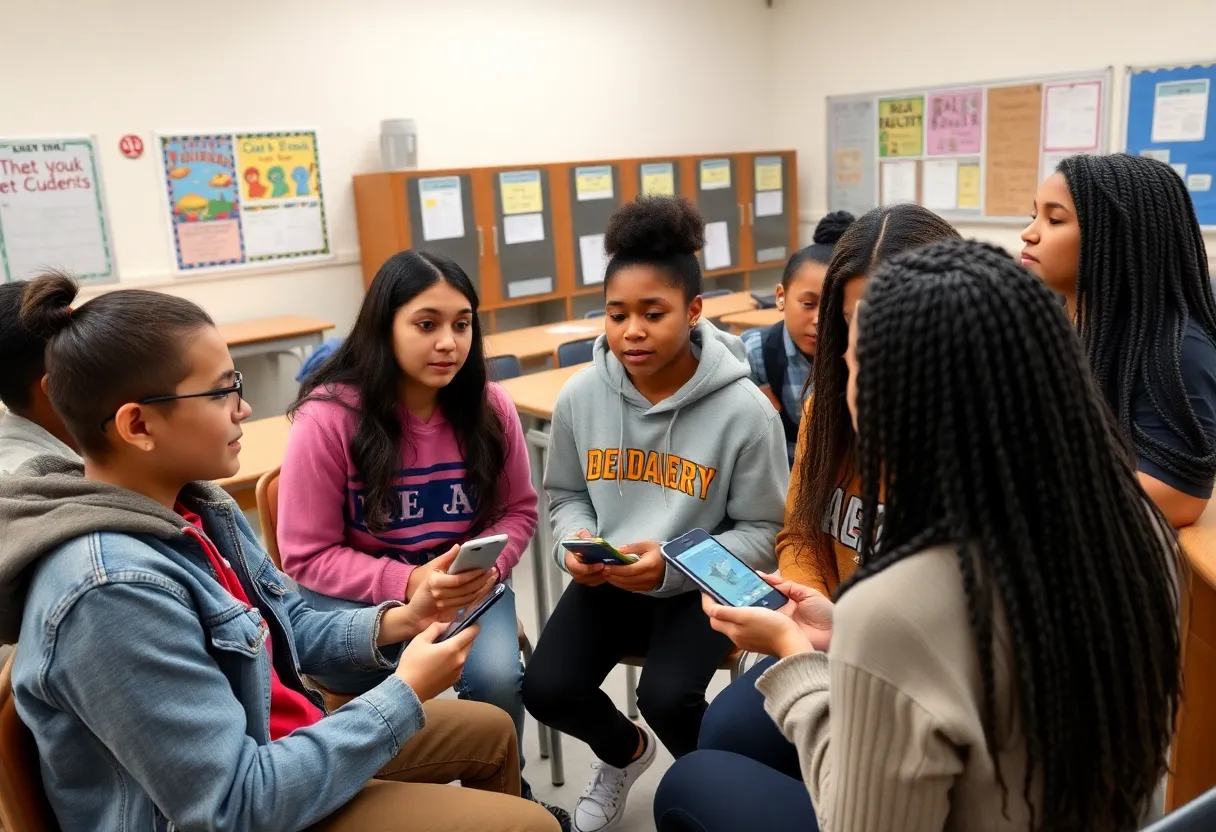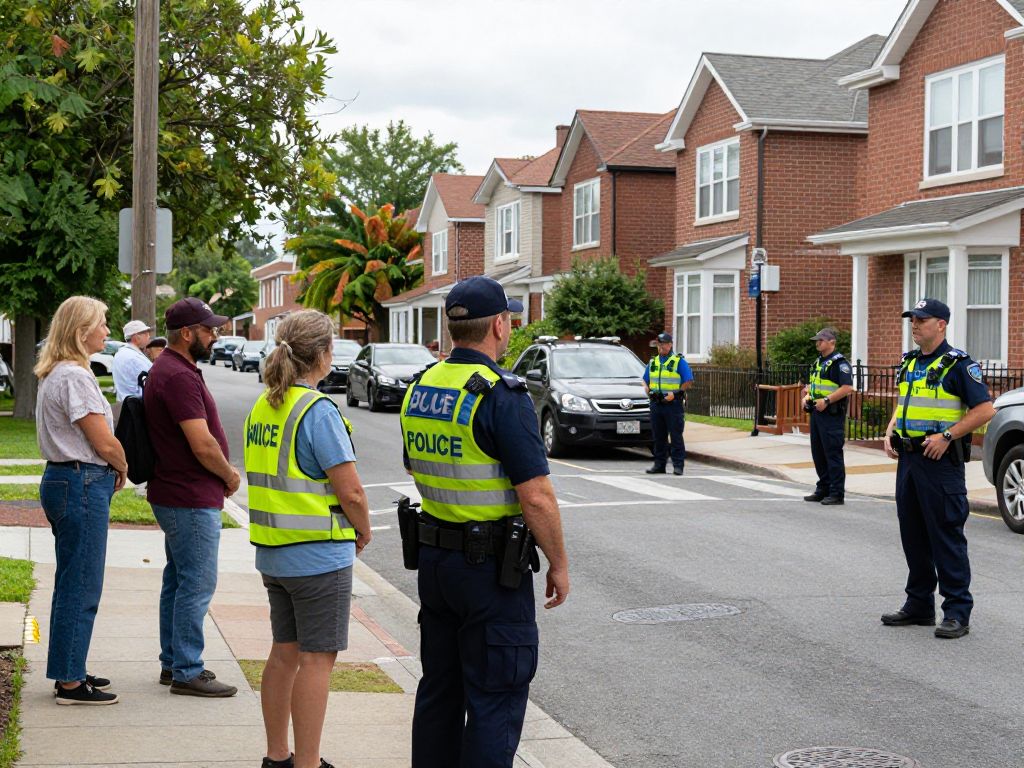News Summary
During a recent City Council hearing in Boston, high school students and educators shared divided views concerning a proposed statewide ban on cellphones and smartwatches in schools. Supported by the Massachusetts Senate, this legislation aims to restrict cellphone usage to improve students’ mental health and academic performance. While proponents believe it will enhance focus and social interactions, critics argue it may impede communication with parents and pose enforcement challenges. The discussion highlights an ongoing national trend of reevaluating cellphone policies in educational settings.
Boston – Boston high school students and educators voiced mixed reactions during a recent City Council hearing regarding a proposed statewide cellphone ban in schools. The Massachusetts Senate has passed a bill that would mandate a ban on cellphones and smartwatches during school hours, pending approval from the House and signature from Governor Maura Healey.
If enacted, Massachusetts would follow in the footsteps of states like Texas in regulating cellphone usage in educational settings. The proposal has garnered attention due to growing concerns from parents and educators about the negative effects of cellphones on teenagers’ mental health and academic performance.
Supporters of the ban argue that eliminating cellphone use will improve student focus and promote authentic social interactions. However, students who oppose the proposed measures point out that banning cellphones can hinder communication with parents and pose challenges in coordinating after-school activities. There are also worries regarding the enforcement costs associated with implementing a ban.
Currently, the Boston Public Schools have a policy that permits students to bring cellphones but requires that they remain out of sight during class hours. Phones can only be used before and after school. The proposed legislation would require that all public school districts in Massachusetts adopt a “bell-to-bell” ban on student access to personal electronic devices by the 2026-2027 academic year.
Strategies suggested for enforcement include having students hand over their phones to teachers at the start of the school day or utilizing Yondr pouches, which can only be unlocked by school officials. These pouches have been successfully used in at least four Boston Public Schools, including English High School, where they reportedly foster more positive social interactions and help mitigate anxiety linked to social media distractions.
Despite some support for the Yondr pouches, students like Ladan Mohamed, a rising sophomore at Boston Latin School, have criticized the idea of spending money on such tools, suggesting that improving emergency contact systems should take precedence. In contrast, supporters, including Caitlin Murphy, the head of The English High School, emphasize that these measures can lead to healthier social interactions among students.
Additionally, students like Laura Lara Santos from Fenway High School have backed a “bell-to-bell” cellphone policy, arguing that such restrictions can have positive effects on academic performance and relationship-building. Alexandra Oliver-Dávila, the executive director of a Latino youth nonprofit, has called for a uniform policy across Boston Public Schools to promote educational equity.
Most students who testified against the ban argued that prohibiting cellphones would not effectively teach them self-control regarding technology usage. Advocates for retaining cellphone access, such as Munira Saeed, highlighted the necessity for students to learn to use technology responsibly rather than face outright bans.
David Bickham from the Digital Wellness Lab has remarked that involving students in the policy-making process could potentially lead to greater acceptance of any restrictions placed on cellphone usage.
The current debate surrounding cellphone policies in schools reflects a growing trend seen nationally, with various states already implementing similar restrictions to address concerns about distractions posed by cellphones and their impact on students’ social dynamics and mental health.
Senate President Karen Spilka, along with other proponents of the bill, reassured that the aim of the ban is not to punish students but rather to support their academic success and foster a healthier learning environment. Critics continue to express concerns over possible issues related to emergency communication and the importance of teaching students to responsibly manage technology in their daily lives.
Deeper Dive: News & Info About This Topic
HERE Resources
Boston Foundation Invests $1.5 Million to Combat Food Insecurity
Bipartisan Discussion in Boston Tackles Key Issues
Hatchet-Wielding Suspect Assaults Driver in Boston Road Rage Incident
Driver Placed on Leave After Tragic Death of Young Boy in Boston
Massachusetts Considers Statewide Cellphone Ban in Schools
Key Evidence Emerges in Mansfield Murder Retrial
Additional Resources
- Boston Globe: Boston Cell Phone Ban in Schools
- Boston 25 News: Massachusetts Senate Passes School Cellphone Ban Bill
- CBS News: Cellphone Ban Proposals Massachusetts Schools
- Wikipedia: Cell Phone Use in Schools
- Google Search: Cellphone Ban in Schools

Author: STAFF HERE BOSTON WRITER
The BOSTON STAFF WRITER represents the experienced team at HEREBoston.com, your go-to source for actionable local news and information in Boston, Suffolk County, and beyond. Specializing in "news you can use," we cover essential topics like product reviews for personal and business needs, local business directories, politics, real estate trends, neighborhood insights, and state news affecting the area—with deep expertise drawn from years of dedicated reporting and strong community input, including local press releases and business updates. We deliver top reporting on high-value events such as Boston Marathon, Head of the Charles Regatta, and Boston Harborfest. Our coverage extends to key organizations like the Greater Boston Chamber of Commerce and Associated Industries of Massachusetts, plus leading businesses in finance, biotech, and insurance that power the local economy such as Fidelity Investments, Biogen, and Liberty Mutual Insurance. As part of the broader HERE network, we provide comprehensive, credible insights into Massachusetts's dynamic landscape.





